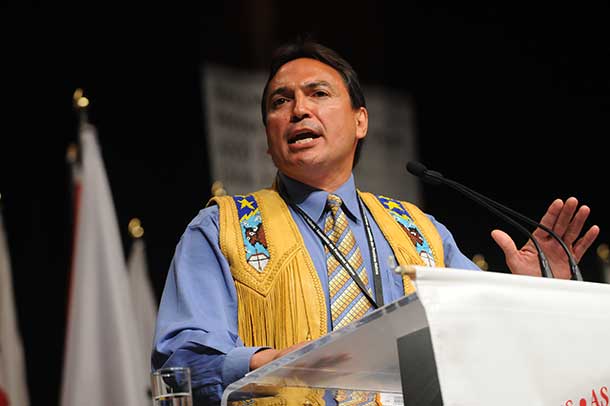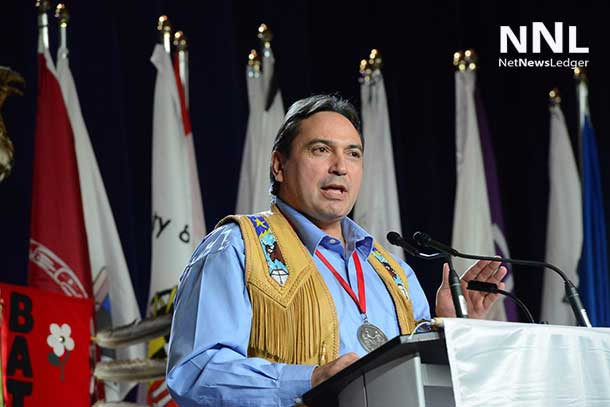
OTTAWA – World Cancer Day was on February 4, Assembly of First Nations (AFN) National Chief Perry Bellegarde and AFN Ontario Regional Chief Isadore Day urged First Nations, federal, provincial, and territorial governments and regional health care experts to work collaboratively to meet the nine targets of the World Cancer Declaration.
“Collaboration with First Nations is the only way to ensure our people have access to culturally safe cancer prevention and treatment services and programs,” said AFN National Chief Perry Bellegarde. “We have made progress but there is much work to do. The United Nations Declaration on the Rights of Indigenous Peoples speaks to the importance of supporting First Nations capacity to lead our own targeted initiatives in collaboration with key partners. Effective and equitable partnerships between First Nations and cancer control experts will help us close the healthcare gap.”
Article 23 of the UN Declaration states that “…Indigenous peoples have the right to be actively involved in developing and determining health, housing and other economic and social programmes affecting them and, as far as possible, to administer such programmes through their own institutions.”
“A recent national study conducted by Cancer Care Ontario shows that First Nations have significantly poorer 5 year survival rates compared to non-Indigenous Canadians,” said AFN Ontario Regional Chief Isadore Day, who holds the national Health portfolio for the AFN. “This is the case for 14 of the 15 most common forms of cancer – treatable cancers such as breast, prostate, and colon cancer. We need to look more closely at the reasons for this but likely factors include the poor state of First Nations health, poor socio-economic wellbeing and the ongoing barriers to equitable care. If we’re going to make progress in First Nations cancer outcomes, we must address the underlying circumstances which perpetuate these poor outcomes.”
While statistics vary from region to region, and national data on First Nations cancer control is scarce, it is believed that cancer is the third leading cause of death among First Nations. Every community faces unique circumstances but common challenges for First Nations cancer patients include equitable access to culturally safe prevention and screening services, equitable access to culturally safe cancer care, seamless continuity of care across various healthcare settings and jurisdictions, timely access to needed Non-Insured Health Benefits and access to local community based palliative services and survivor support.
The AFN continues to work with the Government of Canada and national partners to address priority areas in cancer prevention and care, including integrated approaches to traditional health supports and overcoming jurisdictional barriers in prevention, screening and treatment for First Nations patients and families impacted by cancer.







